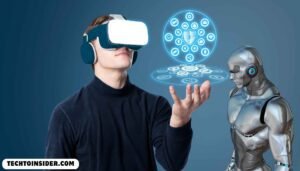Which Statement Describes the Current Availability of Quantum Computers?
Introduction
Welcome to the exciting world of quantum computing where the boundaries of classical computing are pushed to their limits. In this article, we will describes the deep statement into the current availability of quantum computers. You will explore their significance, limitations and potential applications. The landscape of quantum computing is rapidly evolving and to truly grasp its status also we need to explore the nuances. Explore Use of Factorization in Quantum Computing
Nutshell in Quantum Computing
Quantum computing represents a model shift in the world of computation. It harnesses the power of quantum bits or qubits which can exist in multiple states simultaneously due to the principle of superposition. This unique property enables quantum computers to perform complex calculations.
- The Power of Qubits: In classical computing the information is processed using bits that can be either 0 or 1. On the other hand the Quantum computing employs quantum bits or qubits. Unlike classical bits the qubits can exist in multiple states simultaneously and thanks to a phenomenon called superposition. This allows quantum computers to process vast amounts of data in parallel also making them exceptionally well-suited for certain types of problems.
- Entanglement: Another analytical quantum concept is entanglement. When qubits become entangled the state of one qubit becomes linked to the state of another regardless of the distance between them. This mysterious connection enables quantum computers to perform operations that would be impossible for classical computers.
- Quantum Gates: Quantum computations are executed through quantum gates which are analogous to classical logic gates. However quantum gates can manipulate qubits in a more versatile manner. They can perform operations like changing the quantum state, entangling qubits and applying quantum parallelism.
The Quantum Computing Scene Today
Key players such as IBM, Google and Rigetti have taken the position in the quantum computing race. They offer quantum computing platforms is still allowing scientists, developers and enthusiasts to experiment with quantum algorithms and test their applications in scenarios.
1. Quantum Hardware Development
They are engaged in a fierce race to develop and commercialize quantum processors that can handle increasingly complex computations. Each company has its unique approach, whether it’s superconducting qubits, trapped ions, or other quantum architectures. This competitive environment has accelerated progress in the field.
2. Accessible Quantum Cloud Services
One of the most remarkable developments is the availability of quantum computing through cloud services. Leading companies provide access to quantum processors via the cloud also makes quantum computing accessible to researchers, developers and organizations. This democratization of quantum computing has sparked widespread interest and experimentation.
3. Quantum Software and Algorithms
As quantum hardware matures, the development of quantum software and algorithms is becoming increasingly vital. Researchers are working on creating algorithms that can harness the power of quantum processors efficiently. Quantum software development kits (QSDKs) are being made available, enabling programmers to write quantum code. These advancements in quantum software are laying the foundation for future quantum applications.
Achieving Quantum Supremacy
Google’s claim of achieving quantum supremacy sent shockwaves through the scientific community. Although the significance of this achievement is debated and it marks a significant milestone in quantum computing’s journey.
The Significance of Quantum Supremacy
The achievement of quantum supremacy has several implications:
- Validation of Quantum Computing: Google’s success validates the concept of quantum computing as a viable and powerful technology. It has shown that quantum computers can indeed outperform classical counterparts in certain scenarios.
- Acceleration of Quantum Research: The race for quantum supremacy has spurred increased investment and research in the field. It has motivated scientists and organizations to explore new algorithms and applications for quantum computers.
- Solving Previously Intractable Problems: While the specific computation might not have immediate practical use, the potential for quantum computers to solve complex problems in fields like cryptography, materials science, and optimization is now more evident.
The Challenges and Limitations
Quantum computing is not without its obstacles. Noise and errors in quantum systems are major challenges that researchers are diligently addressing. Improving error correction and enhancing the stability of quantum computers are paramount tasks.
- Noise and Error Correction: One of the most significant hurdles in quantum computing is dealing with noise and errors in quantum systems. Quantum bits, or qubits, are incredibly delicate and prone to interference from their surroundings. Researchers are developing error correction techniques to improve the stability and reliability of quantum computers. These methods involve encoding information in redundant qubits and using quantum error correction codes to rectify errors.
- Qubit Coherence Time: The coherence time of qubits refers to the duration during which quantum information can be preserved and manipulated. In many quantum systems, this time is limited, making it challenging to perform complex calculations. Extending the coherence time of qubits is crucial for enabling more extended and reliable quantum computations.
- Scalability: Building large-scale quantum computers is a formidable task. Scaling up the number of qubits and maintaining their coherence is a major challenge. Researchers are exploring various physical architectures and materials to create scalable quantum hardware.
Real-World Applications of Quantum Computing
The potential applications of quantum computing span various fields. Notably, quantum computers can revolutionize cryptography, drug discovery, and optimization problems. For instance, they have the ability to break conventional encryption methods, highlighting the need for quantum-resistant encryption techniques.
- Cryptography and Security: One of the most profound impacts of quantum computing is its ability to break traditional encryption methods efficiently. This presents a significant challenge for data security. However, it also opens the door to quantum-safe encryption methods. Quantum key distribution, for example, offers a secure means of communication, ensuring data remains confidential in a quantum computing era.
- Drug Discovery and Material Science: Quantum computers can simulate the behavior of molecules and atoms with unparalleled accuracy. This capability accelerates drug discovery by predicting the interactions between drugs and biological systems. In material science, quantum computing aids in the development of new materials with unique properties, revolutionizing industries such as electronics and energy storage.
- Optimization Problems: Quantum computers excel at solving complex optimization problems. These include route optimization for logistics, portfolio optimization in finance, and resource allocation in various industries. The speed and efficiency of quantum algorithms bring significant benefits to these sectors, optimizing resource utilization and minimizing costs.
The Symbiotic Relationship: Quantum Computing and AI
The fusion of quantum computing and artificial intelligence is a match. Quantum algorithms can significantly enhance machine learning and optimization tasks also ushering in new possibilities for AI applications. This synergy promises to redefine the AI landscape.
1. Accelerating AI Training
Quantum computing’s most significant contribution to AI is its ability to accelerate machine learning model training. Traditional computers process data sequentially, limiting the size and complexity of AI models that can be trained in a reasonable timeframe. Quantum computers, with their capacity to process information simultaneously, can significantly reduce the time required to train AI models.
2. Networks of Quantum Neural
Quantum computing introduces the concept of quantum neural networks which can be used for machine learning tasks. Quantum neural networks have the potential to handle complex data patterns more efficiently and leading to more accurate AI models.
3. Solving Complex Optimization Problems
AI often grapples with optimization problems that require finding the best solution among countless possibilities. Quantum algorithms like the Quantum Approximate Optimization Algorithm (QAOA) are designed to tackle optimization problems and provides AI systems with a powerful tool for decision-making and resource allocation.
FAQ’s
Q: Which Statement Describes the Current Availability of Quantum Computers services for businesses? A: Businesses can access quantum computing through cloud platforms provided by companies like IBM and Rigetti. However, the full potential of quantum computing for business applications is yet to be fully realized.
Q: Can individuals access quantum computers for personal use? A: Yes, individuals can access quantum computers through cloud platforms, but these machines are highly specialized and may require some expertise to use effectively.
Q: How do quantum computers impact data security and privacy? A: Quantum computers have the potential to break existing encryption methods, posing a security risk. This underscores the importance of developing quantum-resistant encryption techniques to safeguard data.
Q: Can you provide examples of quantum algorithms that showcase the capabilities of quantum computers? A: Quantum algorithms like Shor’s algorithm and Grover’s algorithm demonstrate the remarkable capabilities of quantum computers in factorization and search problems, respectively.
Conclusion
The current state of quantum computers is a exciting border in the world of technology. Although quantum computers have not yet found their way into our homes and the progress made in recent years is undeniably remarkable. Quantum computing holds the potential to reshape numerous industries from cybersecurity to healthcare and promises to redefine our future in ways we are only beginning to fathom. I hope you understand the concept of Which Statement Describes the Current Availability of Quantum Computers.
As we start on this quantum journey and staying abreast of the latest developments in this rapidly evolving field is essential. The Statement Describes the Current Availability of Quantum Computers is more than just a technological advancement but it is a portal to a new era of computing that will revolutionize how we tackle intricate problems.














Post Comment